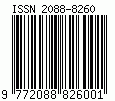Publication Ethics
Publication Ethics of Jurnal Entitas Sosiologi (JES)
Jurnal Entitas Sosiologi is an academic platform which mediates various perspectives in Sociology. It upholds the highest standard of publication ethics of journal as expressed in COPE’s Code of Conduct and Best Practice Guidelines for Journal Editors and COPE's Core Practices.
Ethical Guideline for Journal Administrator
Journal administrator is an academic and professional organization, research and development institution, Higher Education, and publication board which plays roles in deciding whether an article is publishable. This decision becomes a part of the missions of organization, and is taken after a careful deliberation from the reviewers and the editors. This decision is neutral, and free from the conflicts of interests which might come from any parties or agencies, business, ethnicity, religion, race, and intergroup.
Journal administrator gives freedom to reviewers to create such academic atmosphere which appreciates privacy, and maintains the confidentiality of the work of authors, peer reviewers, and editors. Journal administrator guarantees and protects intellectual property rights, especially copyrights and is transparent in managing funds received from third parties. Journal administrator promotes and ensures the sustainability of journal publications.
The journal administrator has the right to determine the allocation of funding in accordance with thejournal’s policy. In its management, the funder does not intervene in the content of the substance of the publication. Research and development funding sources are included in the publication without affecting the reader's perception..
Ethics for Editors
The editor determines the publication process and integrates the functions of authors, peer reviewers, and journal administrators to publish good and trusted journals. The editor responds to criticism, suggestions, and objections from the author honestly and transparently. The task of the editor is also to maintain the independence of the journal from purely commercialization considerations and to strive for the journal to remain a premier class journal in its field. Editors’ work based on principles and ethical standards:
• be responsible for the choice of journal content,
• is obliged to make a guide for authors,
• critically assessing that the written work has been free from ethical violations, honest and objective, independent, free from prejudice in making decisions including in selecting review partners, and
• ensure that the paper review process is carried out thoroughly, transparently, objectively, and fairly.
Ethics for Reviewers
Reviewers play a very important role in the scientific publication process. Reviewers are required to be honest, objective, unbiased, independent, and only take side on scientific truth. Reviewers are required to be critical in assessing the content of an article according to their field of expertise, be open about new things, keep things being assessed confidential, and do not take personal advantages of the papers being assessed, and have the enthusiasm to improve the manuscript they are reviewing by providing constructive feedback. Reviewers have the task of assisting editors in determining the papers that can be published and helping authors to improve the quality of their manuscript. Reviewers are required to always adhere to basic principles and scientific analysis in conducting the process of reviewing a work.
Ethics for Author
The author in a scientific journal is someone who expresses the results of his/ her thoughts and/or research and development in the form of scientific writings. Research is aimed at obtaining new knowledge, adding scientific treasures beyond the boundaries of known knowledge, or producing scientific methods of solving problems at hand. The result of this process is the author's contribution as an individual in contributing to existing body of knowledge.The existence of an author will be recognized after the results of his research are published. Publication is one of the results of research and development so that it can be accounted for by the authors involved in it. An author is obliged to report the process and results of his research honestly, clearly, precisely, accurately, thoroughly, and in a balanced manner and keep research data properly. Publishing high quality research results is an opportunity to promote and self-actualize; maintain the authors’ existence in the scientific community in particular and in society in general. Authors must also comply with the corridors specified in the Author Code of Ethics.
----









